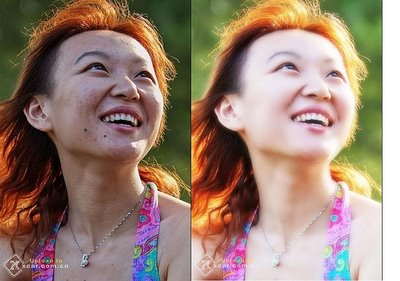Who wants to go back to the times of high school dances and the thought of how horrible it would be to have a pimple pop up on that special night? No woman, teenage or adult, wants to deal with acne breakouts.
Unfortunately a lot of women deal with acne resurfacing in their adult years and it can cause anxiety. Dealing with the problem can be even worse when social events such as job interviews and weddings come along. What is the reason for these late onsets of acne? Persistent adult acne is a condition that is common for many women suffered from acne as an adolescent or that had a late development of acne as an adult. No matter what the reason, the emotional and physical stress caused by acne can be detrimental to a woman.
Typically, adolescence is the stage of life that acne is prone to, but acne caused by hormones, usually starts to act up in the early to middle twenties. This is known to continue well into a woman's adult life. Hormonal acne is caused by over-stimulated androgens, oil glands and hair follicles. Acne breakouts occur when oil glands are stimulated excessively.
Most, almost half in fact, of all women experience an increase in facial oiliness and acne flares about a week before menstruation. When constant acne is partnered with excess facial hair and hair loss or thinning hair, it is a sign that androgen production is excessive and can be a red flag to such medical condition such as polycystic ovaries and adrenal hyperplasia.
If any of these signals are present a woman should seek medical advice. Hormonal acne can also cause women to have abnormal menstrual cycles, suffer from obesity, infertility and possibly diabetes. It is very important for women to talk with their doctor about their concerns; a blood test can determine the cause of the symptoms and help determine the best treatment.
Treatment options for hormonal acne are very effective and readily available. Some treatments available are Benzoyl peroxide, a topical antimicrobial, and also some oral antibiotics if the acne is more severe. Isotretinoin is a very popular and effective treatment for women with cystic acne that is accompanied by scarring.
Oral contraceptive pills can be used successfully for women with hormonal acne who still develop premenstrual flares. Oral contraceptive pills contain estrogen and progestin that help regulate the menstrual cycle and decrease the androgen activity that contributes to the development of acne. By reducing the androgen activity it leads to decreased breakouts of acne.
If the women are not planning to have children they can take oral contraceptive pills to control acne for extended periods. Spironolactone, an anti-androgen, is another medication that may be prescribed in along with an oral contraceptive to prevent and treat hormonal acne. It blocks androgen receptors and decreases androgen production in the ovaries and the adrenal glands to prevent excessive oil production.
The result from this treatment is, of course, fewer acne flares. Oral contraceptive pills can cause several side effects that can be mild or severe. Mild side effects may include breast tenderness, bloating and nausea. More serious side effects such as blood clots and strokes are less common with pills that contain less estrogen. A woman considering oral contraceptive pills to control their acne should discuss the pros and cons with her doctor.
Women typically have drier, more sensitive skin as an adult than they did as a teenager and therefore should talk to their dermatologist about an appropriate skin care program. Gently washing the face with mild facial soap is usually recommended and scrubbing should be avoided. Scrubbing can irritate the skin and make acne worse.
Toners containing glycolic acid or salicylic acid may help remove the oils that contribute to the development of acne during the premenstrual period. Toner can also be an effective tool for those with oily skin. Since some acne treatment can cause dryness women should try to use a light water based moisturizer. Daily sun protection is very important as some acne medications can increase the skin's ability to burn and become damaged in the direct sunlight.
When buying make up products always look for products labeled non-comedogenic, these do not clog or block the pores and will be less likely to cause acne. Your dermatologist is your guide to treatment options and skin care products that can work together with your acne treatment to improve the look of your skin.
By Vincent Newton
http://www.natural-cures4u.org/ provides articles that discuss alternative treatments for a variety of chronic illnesses including Acne and acid reflux disease.
Article Source: http://www.articlerich.com/
http://www.natural-cures4u.org/ provides articles that discuss alternative treatments for a variety of chronic illnesses including Acne and acid reflux disease.
Article Source: http://www.articlerich.com/



No comments:
Post a Comment